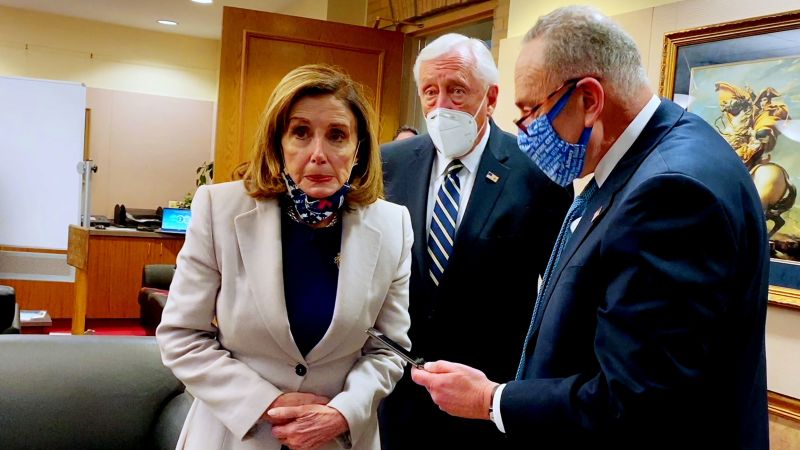You are using an out of date browser. It may not display this or other websites correctly.
You should upgrade or use an alternative browser.
You should upgrade or use an alternative browser.
Trump's Coup Attempt
- Thread starter str8line
- Start date
D
Deleted member 365
Guest
Champion of the working class slobs! He’s not a corrupt rich elitist! He’s just a regular blue collar guy.
View: https://twitter.com/tristansnell/status/1580619883519541248?s=46&t=Txa_Pk27H1imGidrVY-dEA
View: https://twitter.com/nytimes/status/1580596818248839168?s=46&t=Txa_Pk27H1imGidrVY-dEA
View: https://twitter.com/tristansnell/status/1580619883519541248?s=46&t=Txa_Pk27H1imGidrVY-dEA
View: https://twitter.com/nytimes/status/1580596818248839168?s=46&t=Txa_Pk27H1imGidrVY-dEA
Avery
Well-Known Member
Champion of the working class slobs! He’s not a corrupt rich elitist! He’s just a regular blue collar guy.
View: https://twitter.com/tristansnell/status/1580619883519541248?s=46&t=Txa_Pk27H1imGidrVY-dEA
View: https://twitter.com/nytimes/status/1580596818248839168?s=46&t=Txa_Pk27H1imGidrVY-dEA
If it's a sequel, you should at least give it a cooler title like Trump Organization II: Attack of the Clones or Trump Organization: First Blood Part II.
Red
Well-Known Member
Interesting footage from 1/6. From today’s final hearing.

 www.c-span.org
www.c-span.org
Video Footage of Congressional Leaders at Secure Location During Jan. 6 Attack on the Capitol
The January 6 Committee plays new video of congressional leaders at a secure location during the attack on the Capitol trying to get help from the acting Defense secretary, the attorney general and the vice president to get the rioters out of the building so they could resume the Electoral Vote...
Last edited:
D
Deleted member 365
Guest
Good.
View: https://twitter.com/washingtonpost/status/1580655200255164417?s=46&t=Txa_Pk27H1imGidrVY-dEA
And it’ll serve as a nice reminder of what’s at stake right before the midterms. I hope it’s televised on all
Major networks and in prime time. Anyone else want these cowards and Trump sycophants in positions of power in this country?
View: https://twitter.com/washingtonpost/status/1580655200255164417?s=46&t=Txa_Pk27H1imGidrVY-dEA
And it’ll serve as a nice reminder of what’s at stake right before the midterms. I hope it’s televised on all
Major networks and in prime time. Anyone else want these cowards and Trump sycophants in positions of power in this country?
fishonjazz
Well-Known Member
Contributor
2018 Award Winner
2019 Award Winner
20-21 Award Winner
2022 Award Winner
2023 Award Winner
2024 Award Winner
2025 Award Winner
Yep. Just name your venue. If Trump is there, it’s all about Trump….
View: https://twitter.com/RonFilipkowski/status/1579958606572982273
Holy crap he is douche.
D
Deleted member 365
Guest
Pathetic.
And it’s pathetic that millions of Americans and a handful of mindless zombies on this website still continue to defend and worship this pathetic empty husk of a man.
View: https://twitter.com/mattortega/status/1580704010373238785?s=46&t=PTeKHbIql4-KnEXvNiX5hg
And it’s pathetic that millions of Americans and a handful of mindless zombies on this website still continue to defend and worship this pathetic empty husk of a man.
View: https://twitter.com/mattortega/status/1580704010373238785?s=46&t=PTeKHbIql4-KnEXvNiX5hg
D
Deleted member 365
Guest
Who wants 4 more years of this ****?
View: https://twitter.com/wtfjht/status/1580742939416088577?s=46&t=S5sZEw7gs1bKJsv75thgtw
View: https://twitter.com/wtfjht/status/1580742939416088577?s=46&t=S5sZEw7gs1bKJsv75thgtw
fishonjazz
Well-Known Member
Contributor
2018 Award Winner
2019 Award Winner
20-21 Award Winner
2022 Award Winner
2023 Award Winner
2024 Award Winner
2025 Award Winner
Who wants 4 more years of this ****?
View: https://twitter.com/wtfjht/status/1580742939416088577?s=46&t=S5sZEw7gs1bKJsv75thgtw
Yep. Something new every damn day. He is a total piece of ****
This is how trump & his morons “Support the troops.” ****ing traitors.
Red
Well-Known Member
Yesterday the 1/6 Committee aired only about 7+ minutes of what Nancy Pelosi’s daughter filmed on January 6th. It was a stunning moment. CNN has obtained more of that footage. For the historical record, hard to ask for more than having someone, with the wherewithal to film history, do just that.Interesting footage from 1/6. From today’s final hearing.

Video Footage of Congressional Leaders at Secure Location During Jan. 6 Attack on the Capitol
The January 6 Committee plays new video of congressional leaders at a secure location during the attack on the Capitol trying to get help from the acting Defense secretary, the attorney general and the vice president to get the rioters out of the building so they could resume the Electoral Vote...www.c-span.org

CNN Exclusive: New footage shows congressional leadership at Fort McNair on January 6, scrambling to save the US Capitol | CNN Politics
Never-before-seen footage, obtained exclusively by CNN, shows in vivid new detail how congressional leaders fled the US Capitol on January 6 and transformed a nearby military base into a command center, where they frantically coordinated with Vice President Mike Pence and Trump Cabinet members...
This moment can be seen in the 7 minute clip I posted yesterday:
Anticipating that some will complain of how “violent” Democrat Pelosi sounds, let us not forget that Republican Lindsay Graham, he of seething rage, when he thinks it suits him, wanted the insurrectionists shot in the head:

Trump ally Lindsey Graham told ex-cop Capitol rioters should be shot in head
Michael Fanone recounts meeting with South Carolina Republican senator in book to be published next week
“You guys should have shot them all in the head,” the now ex-cop, Michael Fanone, says the South Carolina Republican told him at a meeting in May 2021, four months after the deadly attack on Congress.
“We gave you guys guns, and you should have used them. I don’t understand why that didn’t happen.”
Last edited:
Red
Well-Known Member
The traitor whines in his reply to yesterday’s hearing. Clearly, the biggest crybaby to ever serve as president, a real man child who skipped the part of life where you mature emotionally. What a pathetic “man”:
